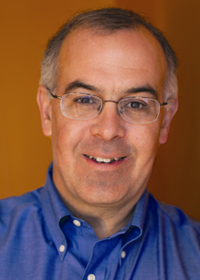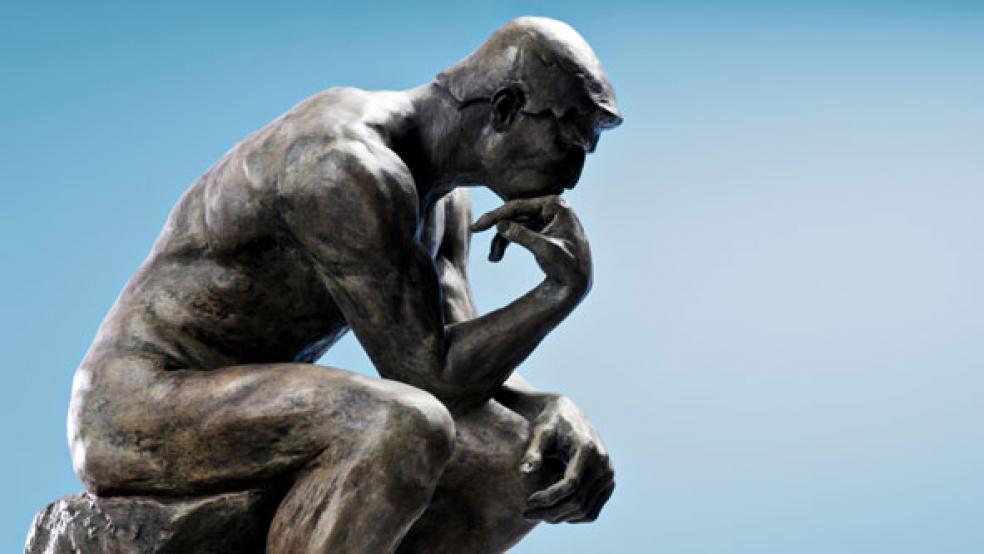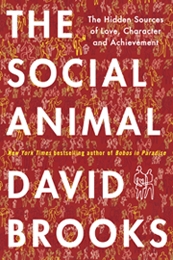If any of us think that reasoned, rational thought is what’s primarily driving the uprisings in Egypt or the Wisconsin union protests – or any other important economic or political issues of the day, for that matter – it’s time to think again. Emotions and the unconscious play a critical role in how we see the world and how we act on what we see in concert with others, according to David Brooks, columnist, commentator, and author of an important new book, The Social Animal (Random House, $27). “I think it’s pretty clear that most of the thinking we do is below the level of awareness,” he told The Fiscal Times. In a wide-ranging interview, Brooks elaborated: 
The Fiscal Times (TFT): How do the uprisings in Egypt illustrate your point that much more is at work than pure reason and logic?
David Brooks (DB): The fact that you can have an emotional contagion sweep across an entire region – where everybody thinks and perceive things one way, and then suddenly something happens, and they now think and perceive things in a totally opposite way – is not surprising to me after doing the research for this book. Our emotions sweep across us like wind might sweep across a field of grass. It can happen in one way in Egypt, with these emotional contagions, and in another way, when the entire financial industry around the world begins to misprice risk in the same way at the same time.
You’d think that in global markets, people would come at it [the assessment of risk] with a very diverse set of perceptions and cultures. Yet they get caught up in global mental information loops feeding each other in how they see the world, in ways they don’t even understand. Then the bubble happens – and suddenly it all looks absurd.
Power of the People
TFT: Do today’s social media play into the intersection of rational thought and emotion? Is social media merely an instrument for change, or is it helping to actually drive change?
DB: It links people superficially, at least. The research shows that email, texting and Facebook are not even close to being a replacement for face-to-face communication. One experiment done at the University of Michigan showed how groups of people solved problems. Some groups met face-to-face to solve a math problem and did quite well. But the groups who met only by email and tried to solve the problem that way failed. They couldn’t do it in the 30 minutes allotted. That’s because most of our communication is unconscious and requires back and forth.
TFT: So in a business setting, at least, so much for teleconferencing?
DB: Sometimes it’s unavoidable, but it’s not a replacement for face-to-face contact. Also, something else to realize is that compensation schemes that tell people, ‘If you perform well, you’ll get a bonus,’ are less effective than compensation schemes that say, ‘If your group performs well, you’ll get a bonus.’ Group rewards are more powerful than individual rewards.
TFT: You also say that, in general, charismatic people don’t make the best CEOs. That’s a bit surprising.
DB: No one personality type guarantees a successful CEO, according to the research, and the general pattern is that charismatic people are not the best CEOs, though there are exceptions – and I would put Jack Welch in this category. But the person who’s a little dry but a good manager, a good executor, a good detail-oriented and organized person – that’s the person who tends to make the better CEO. The execution is tremendously important, as is a sense of modesty and knowing your limitations.
Economic Benefits of Cities and Communities
TFT: We’ve long understood that it’s the individual who can triumph over all – but you say this is much more nuanced and multi-textured.
DB: We have a very individualistic ethos in this country, but we overplay it. We have an image of ourselves as the lone cowboy out on the range making decisions and running our lives. In reality, the settling of the West was all about building communities. One of the reasons cities still exist is that for people who live in densely populated areas, productivity increases faster than the productivity of those who live in far-flung suburbs or other areas. People in cities benefit from the contact they have with other people.
TFT: Can this, then, be extended to what’s happening in Wisconsin, as union members in Madison and elsewhere rise up against Governor Walker’s decision to cut most collective bargaining rights to trim deficits?
DB: One of my rules for fiscal policy is that everyone should have to suffer a little. Everyone must feel they’re in it together, that they understand why Walker is so intent on cutting. It should feel like a community. If you only cut from people in the other party, you’re going to create backlash and division. The problem is so big that it’s going to require probably multiple administrations across both parties working on the problem for many years. I think it’s important to get started on a footing that says, ‘We’re all going to do this. We’re all going to suffer, but we’re also all going to benefit.”
Money and Happiness: A Complex Connection
TFT: You say that people are bad at judging what will make them happy, that they overvalue work and money, compared to the benefits of being married, for example. What’s at work here?
DB: A lot of us think, If only I earned 25 percent more, I’d be happy. If you’re poor and you acquire more money, it does make some difference, but once you get to a certain level, extra money makes relatively little difference. One study says that getting married produces the same happiness gain as $100,000 a year in income – but even more remarkable to me is that joining a club that meets once a month produces the same happiness gain as doubling your income. So one of the lessons of this is, don’t only go to lectures and movies. You should also join clubs. Clubs improve your life.
TFT: What about folks who aren’t ‘joiners’?
DB: If you feel lonely, there’s a mountain of studies showing that you won’t live as long and won’t be as happy. But just because we’re social creatures doesn’t mean we all have to be gregarious party animals. And some people, maybe even including myself, feel quite happy when we’re communing with a person who’s been dead for 100 years who happened to write a great book or compose a great piece of music. That’s social, too – it’s just not social with somebody who’s alive right now.






